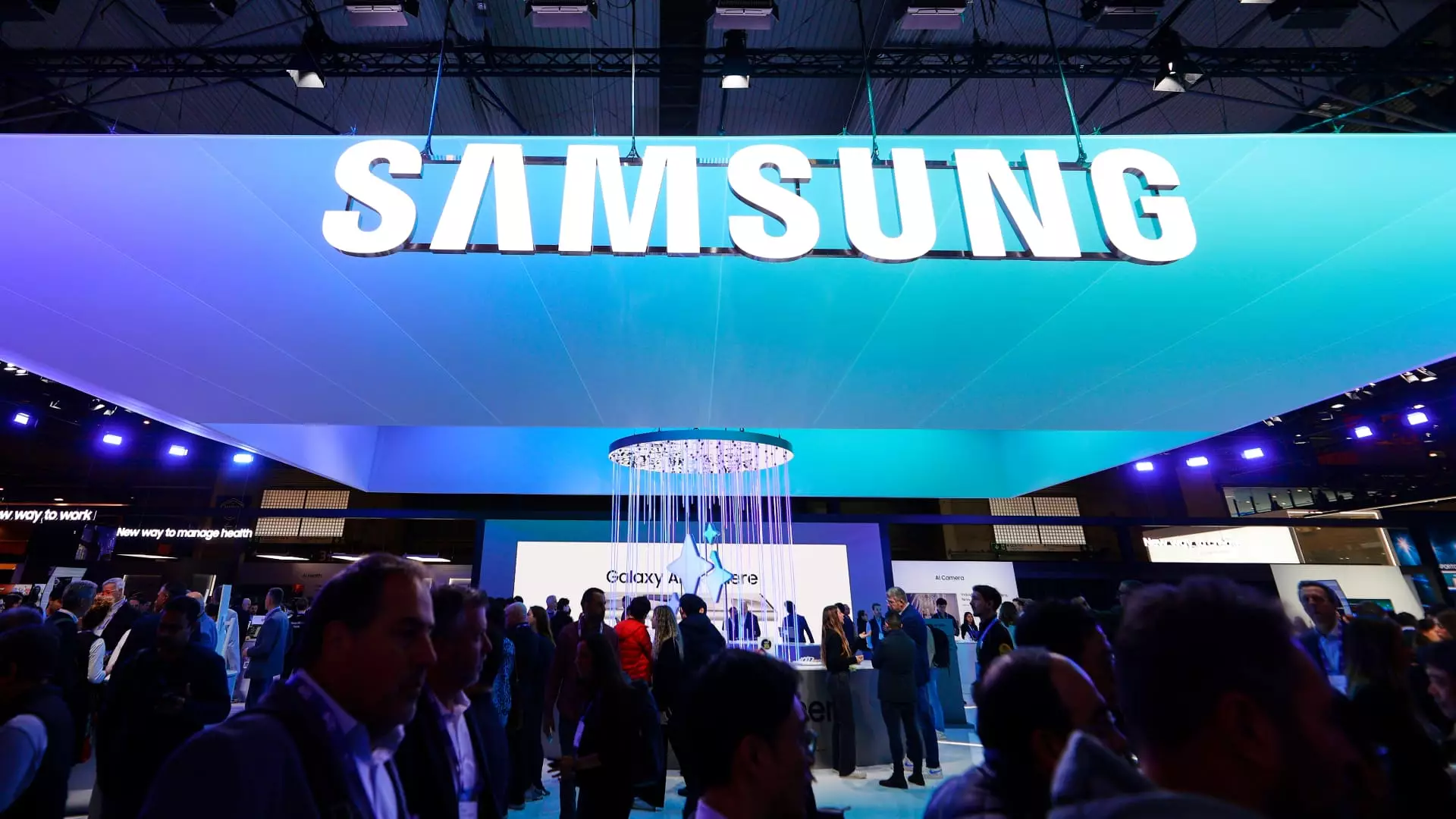Samsung Electronics, renowned as a powerhouse in the technology sector, has recently announced a concerning outlook for its financial performance in the third quarter of 2023. The South Korean company’s operating profit is anticipated to be around 9.10 trillion won (approximately $6.5 billion), a staggering 274% increase from the previous year’s figure of 2.43 trillion won. Despite this noteworthy surge, the forecast significantly underwhelms analyst expectations, which had predicted an operating profit of 11.456 trillion won. This discrepancy raises questions about the current state and future prospects of Samsung’s financial health in a competitive marketplace.
Samsung’s external conditions, particularly in its memory chip business, have contributed to this disappointing forecast. The company attributes its lackluster performance to “one-time costs and negative effects,” reflecting broader challenges within the industry, such as fluctuating demand and increased competition. Compounding the issue, delays in shipments of high-bandwidth memory (HBM3E) chips have further exacerbated fears of stagnation in a sector that has historically been a major revenue source for the company. Analysts note that an oversupply of legacy products, especially from Chinese competitors, is pushing down market prices and squeezing margins, creating a perfect storm that Samsung struggles to navigate.
The tech giant’s challenges underscore the intense competition in the memory chip sector, where the rise of nimble competitors has altered market dynamics. Daniel Yoo from Yuanta Securities Korea emphasizes that Samsung appears less aggressive in capturing market share compared to previous years. This slowdown is particularly concerning given that the memory division has been the backbone of its revenue streams. The decline isn’t just about financial figures; it’s a reflection of shifting technological demands and changing user preferences as the industry transitions towards new types of memory solutions.
In response to deteriorating market conditions, Samsung has reportedly instructed its global subsidiaries to implement a 30% reduction of staff in select segments. Such proactive measures suggest the company’s recognition of the need for internal realignment amid external pressures. However, these decisions can instill anxiety among stakeholders, impacting employee morale and investor confidence. The company’s stock has already seen a 22% decline year-to-date, and the recent profit guidance has deepened fears of a prolonged downturn.
Looking Forward
As Samsung prepares to unveil its detailed third-quarter results, the stakes have never been higher. Investors are eagerly anticipating information that could provide clarity on the company’s path forward. The memory chip giant is at a crossroads, requiring a strategic approach to adapt to shifting market dynamics and regain its competitive edge. With challenges mounting, it is crucial for Samsung to remain agile in its memory supply strategy while exploring avenues for innovation and growth outside its traditional business models. The coming months will be pivotal in determining not only the financial recovery of Samsung Electronics but also its longevity in the rapidly evolving tech landscape.

